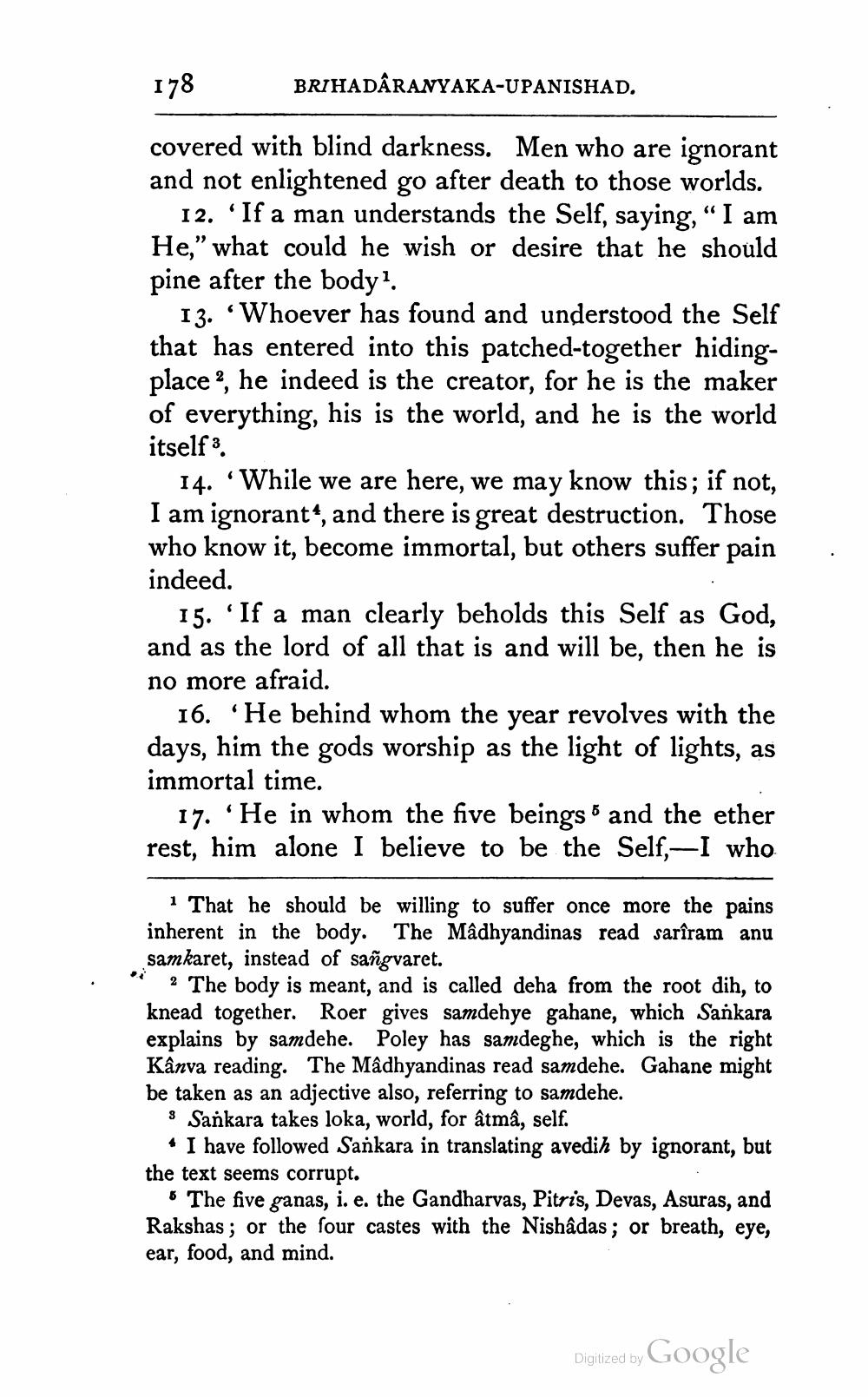________________
178
BRIHADARANYAKA-UPANISHAD.
covered with blind darkness. Men who are ignorant and not enlightened go after death to those worlds.
12. 'If a man understands the Self, saying, “I am He," what could he wish or desire that he should pine after the body?
13. “Whoever has found and understood the Self that has entered into this patched-together hidingplace ?, he indeed is the creator, for he is the maker of everything, his is the world, and he is the world itself 3
14. While we are here, we may know this; if not, I am ignorant“, and there is great destruction. Those who know it, become immortal, but others suffer pain indeed.
15. 'If a man clearly beholds this Self as God, and as the lord of all that is and will be, then he is no more afraid.
16. He behind whom the year revolves with the days, him the gods worship as the light of lights, as immortal time.
17. 'He in whom the five beings 5 and the ether rest, him alone I believe to be the Self,—I who
1 That he should be willing to suffer once more the pains inherent in the body. The Mâdhyandinas read sarîram anu samkaret, instead of sañgvaret. * 2 The body is meant, and is called deha from the root dih, to knead together. Roer gives samdehye gahane, which Sankara explains by samdehe. Poley has samdeghe, which is the right Kânva reading. The Mâdhyandinas read samdehe. Gahane might be taken as an adjective also, referring to samdehe.
s Sankara takes loka, world, for atmâ, self.
* I have followed Sankara in translating avedih by ignorant, but the text seems corrupt.
* The five ganas, i.e. the Gandharvas, Pitris, Devas, Asuras, and Rakshas; or the four castes with the Nishâdas; or breath, eye, ear, food, and mind.
Digitized by Google




